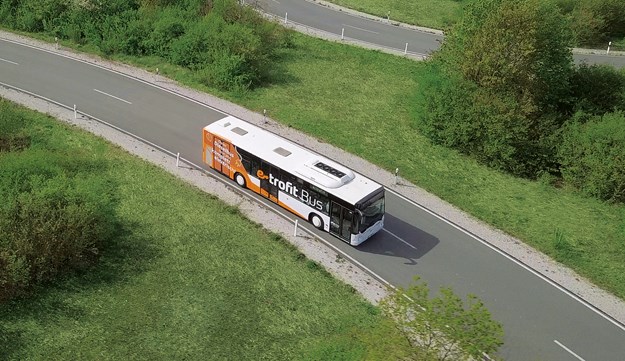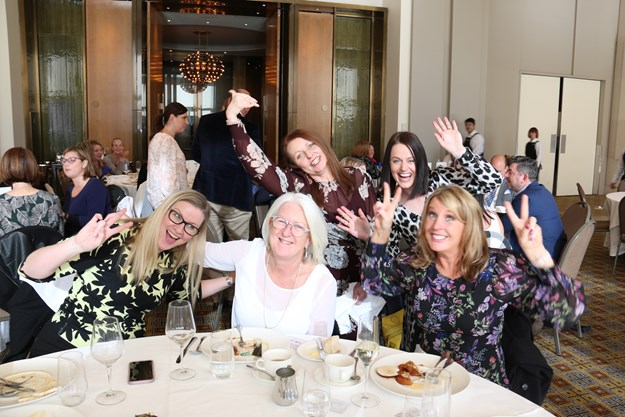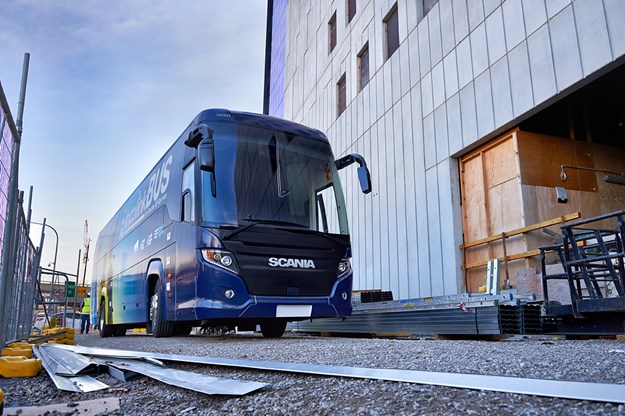When medal-winning wheelchair racer and 2019 NSW Australian of the Year Kurt Fearnley 'inspiringly' addressed delegates at the BusNSW Conference recently – calling for “more rebels” – people listened.
You know what is one of the weirdest yet most amazing sounds a bunch of humans can make? And, no, this is not some collective baked beans appreciation society joke.
It’s the sound of heartfelt and unusually long applause. I say unusually long because, well, if you are at such an event where rapturous clapping breaks out, celebrating and commemorating some outstanding spectacle probably – tripping over a garden hose and landing over a fence into a neighbour’s flower bed, or accidentally slamming into glass doors repeatedly three times in a packed pub convinced they were open (I’m still sure they were) being excluded – there’s a point we instinctively know when the applause has to end.
And it does end, eventually. It has to. Fatigue and general apathy will kick in; the dying ‘pitter pattering’ of palms drawing the cacophony into an inimitable close. Yet it’s the duration of the sound at its seemingly incessant peak that gives some indication of the value and impact something has had on the audience.
When Kurt Fearnley spoke candidly to BusNSW Conference attendees recently at the 2019 event held at Leura, in Sydney’s Blue Mountains, about life without legs, his triumphs and tragedies in a wheelchair (a gold medal wheelchair racing at the Beijing Paralympics, trekking nine hours uphill across dirt and mud and tree roots and rocks when tackling the horrific Kakoda Trail – just because), the applause he received lasted about half a minute; 28.3 seconds to be exact. Maybe.
Now at first that may not sound like much until you hear it; what kind of moron measures these things, anyway? But after the audience had listened to him intently, laughed with him, shared in his joys on the big screen, wiped tears from their eyes slyly once his message was delivered, that 28.3 seconds of standing ovation in a once-quiet conference room was truly remarkable.
INVOKING CHANGE
Only the night before had I been speaking to a few bus operators about the ups and down they face these days, especially dealing with government policy. One in particular, whom I cannot name, shared their anguish at an ever-changing government contract that makes the bus operator now seemingly accountable for the injury or deaths of any school children that may randomly run out onto the road when dropping them off and getting hit by oncoming, or rear-coming, traffic. So instead of governments being proactive and investing into new technology to help prevent such unfortunately inevitable (currently) incidents, it pretty much sounds to me like some buck passing of responsibility because it all just becomes too hard to take on, leaving the poor operator potentially liable for the unexpected actions of surrounding traffic. What the…?
This is policy. This is law. This is regulation. So how do you stop it? How do you change it – especially with automated vehicle technology (for cars and trucks and buses to communicate with each other well before any chance of impact so they slow to a safe and life-saving speed in certain areas) still too far off to be fully implemented onto our roads? Fearnley would make the call: “We need more rebels…”
DO THE RIGHT THING
He said: “I can guarantee one thing, [one day] we are all going to be me. We are all going to be that person that needs to be carried for a bit, and we as a community we need to … become alright with that … because we don’t know … we don’t know who’s going to be needed, be required to do the carrying a week from now. And we as a community are stronger when we bring everybody along with us.
“The Track [Kakoda] … I know no matter what’s in front of me, people have done it harder…
“I know no matter what choices I make from here on in, I just hope I make the choice that they [parents, supporters] would be proud of.
“But I also know that … we as a community, we will get through whatever hardships [are] there. Because we have actually strengthened through each of those hardships.
It’s how we are made. When things fall low we all come together and we figure it out, but also me as an individual I’ll get through anything that’s in front of me because I have the ability to look up and ask for help when needed. It changes lives and saves lives…”
Explaining who and why people stuck up for and supported him in his youth, Fearnley continued: “It wasn’t just my mum and my dad … that reminded me who I am, telling me I was strong. In 1985 people actually rebelled for me to be who I could be. In 1985 when my principal and my parents were told that I should be institutionalised … a guy in his wheelchair should be taken out and put into special schools an hour away, my principal rebelled against the Department and demanded that I should be a member of my community.
“He would then spend his Christmas holidays cementing our school [ramps] and buying the bags of concrete out of his own money … purely because he believed that I, also my peers, deserved me.”
And then it came…
“We need more rebels.”
“There would be offices, workplaces and … [in] transport … where policy will get in the road of them [operators, people] living.
“And if there is a policy out there that stops your family, your community for living, it’s the wrong policy. And it can’t just be people with the disabilities that fight, otherwise we [society] are lost.”
He added: “The most valuable and cheapest thing that every single person can do, every day, is instil belief… It’s easy. And if you, on an individual level, haven’t been told that you’re strong and powerful, don’t wait for someone to rip that away from you to realise it.
“We only have one crack at this thing; there’s no do-overs of today… Or tomorrow. Just one. So rip in!”
And have those conversations in workplaces, in households – we need more optimism!
“Now I may speak about this for a decade, I can tell a million people, but that one person that leaves the room and doesn’t just say ‘Gees that was good’, but actually believes in it … and decides to run with it … that’s just when things happen.
“So thank you.
“I apologise – I got a little intense…” [audience laughter]
“But nice to meet ya and I … I hope to see you ’round…”
OPEN WIDE, COME INSIDE
This issue we check out a Scania bus that’s being used for a good cause, the screening of men in the construction industry for prostate cancer, while grabbing an ABC exclusive interview with new Mercedes-Benz Bus boss Mehmet Karal. He’s got big plans for the brand in this region, so check that one out!
Also inside we finally get to test a new Scania Touring with Opticruise and go visit Queensland’s Roundabout Tours – a smaller operator with a story to tell and no problem telling it like it is.
Further in we have the latest June bus delivery data – and it’s a cracker – plus check out the recent 2019 BusVic-supported Women On Board Seminar and Luncheon series held in Melbourne, in our pictorial.
Until the next thrilling instalment…



.JPG)
.JPG)
.jpg)

.jpg)


.jpg)